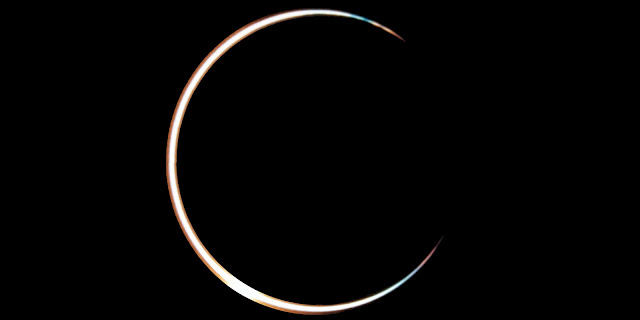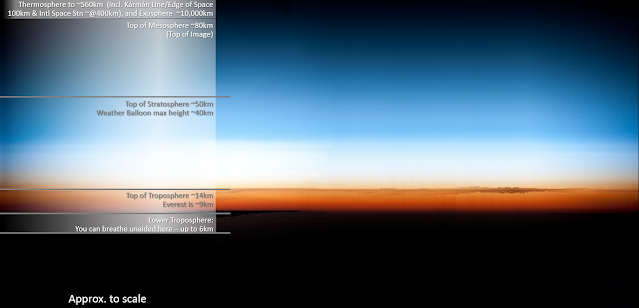There is No Point to this Blog Post
To most immersed
in Western culture, this blog post has no purpose. There is no need to evolve our understanding of
sustainable human development. The current,
and many would say obvious, goal of sustaining human development is to raise the
standards of living of everyone in the world as high as possible because this will
lead to improved well-being. Further, most
would say, the way to do this is also obvious: the economy must be developed sustainably,
it needs to grow forever, in order to generate the wealth required to raise the
standard of living. Further, they would claim
that having a goal for humanity to maximize well-being, by sustaining human and
economic development, is ethically sound. Thus, most would strongly support the
UN’s overall agreed goal for humanity: Sustainable Development.
But what if this accepted wisdom
was based on two false assumptions about the world and ourselves?
A Little History of Human and Economic Development
One might say
that this accepted wisdom originated at the 1944 Bretton Woods Conference where
the post-world-war 2 commercial and financial arrangements were agreed upon by the
44 Allied Nations; institutions like the World Bank were established as a result. To greatly simplify, the macro-economic wisdom
that prevailed then was as follows: The overall
goal for humanity is to maximize well-being.
To improve well-being requires an ever-growing economy, an ever-developing
economy, to provide food, jobs, material goods, and services. Private business is the primary means to develop
the economy. But private business can’t or
shouldn’t do many things required for well-being (think public transport or unemployment
insurance or depending on where you are healthcare). Therefore, governments must be ultimately responsible
for well-being and pay for this via their income, the taxes on the wealth generated
by businesses and citizens. In other words,
economic growth was understood to be a necessary precursor to human well-being,
or even more succinctly, sustaining economic development is required to sustain
human development.
For business
this was tremendous... it had a clear goal... generate wealth. And it was good for the government too... it too had
a clear goal... tax and spend to enable well-being. The two systems were quite segregated from each
other; they could operate at arms-length.
Indeed they were so segregated a noted micro-economist (an economist focused
on businesses, not on whole economies), Milton Friedman thought it a very positive
thing to say “there is one and only one social responsibility of business – to use
its resources and engage in activities designed to increase its profits so long
as it stays within the rules of the game, which is to say, engages in open and free
competition without deception or fraud.” In other words, let us business people worry about
wealth generation, and you other folks in government worry about well-being.
(It is worth noting that in the late 1970s thru the
2000s there was a powerful political push to reverse this. To say the objective
was wealth creation and this would somehow lead to well-being via ‘trickle-down
economics’, rather than the earlier idea that well-being required wealth-creation
to serve the objective of human development.
In recent years this thinking has receded somewhat – the United Nations Sustainable
Development Goals are perhaps an example of this. So, for the purposes of brevity I’ve not explored
this part of the history here)
Systems Thinking Highlights a First Flawed Assumption
But now let’s
examine this system of sustainable economic and human development using a little
systems thinking. In this case, by asking
the question what is the context for this system of sustainable economic and human
development? One key answer is that our planet
Earth is the context for both economic development and human development. Both types of development happen in the same ‘place’. This means that how, where and what type of economic
development happens will have an impact on how much, where and what type of human
development happens (or doesn’t).
Unfortunately,
back in 1944 systems thinking was just a glimmer of a thing. So, the macro-economists at the Bretton Woods
conference didn’t think to ask this contextual question. As a result, a major flawed assumption was at
the heart of what was agreed back then: economic
development happens in one place, and human development occurs in another place.
The results of
this assumption only started to become apparent as the post-world-war 2 economy
boomed. We slowly discovered that how and
where business operates can have massive (positive and negative) direct impacts
on human well-being, and (usually negative) impacts on the natural environment upon
which human well-being immediately and ultimately depends.
One of the first
examples where this assumption was questioned was in the 1962 book by Rachel Carson,
Silent Spring, which documented the death of birds as a result of eating insects
contaminated with the pesticide DDT. We discovered
that how agribusiness conducted itself mattered to the health of the environment
and hence on human health – although back then people definitely didn’t always understand
the connection between environmental and human health. As one example, poisonous pesticides making their
way into food crops and then us humans. We
discovered that human development, human well-being, was reduced due to the unconstrained behaviour of agribusiness to
economically develop, i.e. grow profitably, because they both happened in the same
place, Earth.
Unfortunately,
so deeply was this mistaken assumption embedded in the thinking of business and
government that it is still with us today.
The 2015 UN Sustainable Development Goals (UN SDGs) are a wonderful gift
we’ve given ourselves. And, the majority
of the seventeen SDGs are focused on human development, and protecting the environment
upon which human well-being depends. But
one goal, goal 8, is focused on sustaining economic development and this is understood,
usually implicitly, as the necessary precursor to realizing most of the rest of
the well-being-focused goals.
So now we know,
sustaining unconstrained economic development such that the vital life-giving systems
of our planet are irrevocably damaged, will, over time, reduce human well-being,
not enhance it. In other words, unconstrained
sustainable economic development will not lead to sustainable human development,
rather the reverse.
A Second Flawed Assumption: Everyone Wants to Develop
in the Same Way
Recently I wrote
a blog post that explored the impacts of the ideas of modernism. Specifically, how modernists believe that to perfect
ourselves we humans must all become alike, living together in a single global culture,
on a single globe, in a single global village.
(See that blog post here)
From this, it
is easy to see the second flawed assumption in the thinking about sustaining human
development. The working definition of human development is based on this modernist
idea. Most of the time people talk about
human development, again frequently implicitly, mean development that will lead
to a global homogenous human culture where we are all alike.
Examples of this
view of human development in practice include the processes of colonization to make
the colonized like the colonizer, the growing hegemony of modernist business practice,
the growing influence of modernists’ consumption-based definition of well-being
around the globe, and the growing impact of a single modernist culture (think Hollywood).
But peoples everywhere
know for historical, cultural, practical, and spiritual reasons they are not the
same and cannot be made the same as everyone else. Difference and diversity are a strong source of
identity and meaning-making.
As a result,
over recent decades, as the push for a single global culture grew ever stronger,
we have seen significant pushback from a large number of groups and cultures around
the world. They are demanding development
that respects difference and diversity fundamentally at odds with the idea of a
single global culture. Prominent amongst
these are the numerous indigenous-led initiatives to reclaim their culture, land,
spirituality, and language, and various separatist movements around the world (the
split in two of Czechoslovakia, the disintegration of Yugoslavia, Brexit, etc.)
and the anti-free-trade, occupy and anti-globalization movements.
Towards a New Systemic–Amodern Understanding of Human
Development
So perhaps there
is a point to this blog post! Don’t these
two flawed assumptions at the heart of our current definition of sustainable human
development suggest that it is time for a new understanding? An understanding of human development that is
based on systems thinking and one that is amodern, breaking free of the hubris of
modernist assumptions.
What if our definition
of human development recognized we, each of us, exist within a tiny 6km high critical
zone where all life occurs – from the soil under our feet to about 6km up – the
height we can survive unaided? What if our
definition of human development recognized that biophysical diversity is seen as
something to work with not against? And,
what if our definition of human development celebrated human diversity as a strength
to be recognized and encouraged? (For more
on the critical zone read the 2nd part of
my
blog post to explore what could come in place of modernism.)
Such a definition
of human development would celebrate and encourage the diversity of our planet,
ourselves, and all life. It would recognize
there are many valid ways for people to know the land upon which they live – different
systems of spirituality, different cultures and practices – science and traditional. It would explicitly recognize all life occurs
within and is based on the finite resources of the critical zone. It would recognize all life is dependent upon
the processes within the critical zone, such as climate regulation and water cycling,
ensuring they function optimally for human and other life.
Rethinking Economic Development
So now we understand
that the systems of economic development must occur in service of this new definition
of human development. If we truly want widespread
human well-being, we must recognize that economic development happens in the same
place, the critical zone, as human development. We must recognize that as a result,
economic policy and operating businesses have massive potential to directly enhance
and harm human development – directly influencing human well-being. We must respect and celebrate diversity and differences
of culture and spirituality. And, we must
respect and celebrate the diversity of all life in all places.
In short, we need
to fundamentally shift our understanding of economic development to recognize that
it happens within and for the benefit of society. That society is pursuing human well-being as its
goal. And that society exists and is dependent
upon a thriving environment.
Sustaining the Result We Want: The Possibility for Flourishing
Perhaps to help
us make this dramatic shift in thinking we need some new language, language that
makes this new understanding explicit. Language that moves away from the old terms
sustainable (human and economic) development and its flawed assumptions about what,
where, and how well-being arises.
What if our goal
was to sustain the possibility for human and all other life to flourish on our planet
for generations to come, enhancing the beauty, integrity, and resilience of living
communities (adapted from Dr. John Ehrenfeld and Michelle Holiday)? What if everyone got to define for themselves
what flourishing meant to them in their diverse places, cultures and spiritualities?
What if
we understood the result of our journey as humans, human development, was to strive
to ensure human and all life had the possibility to flourish for generations to come? In short, what if said what we want is sustainable
flourishing?




